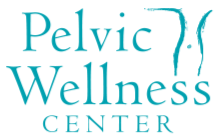This month’s press release for Pelvic Wellness Center: Drinking less during the day reduces the likelihood of childhood “accidents” and bedwetting, right? Not necessarily, say Judy Abel and Shannon Forrestall, physical therapists and co-owners of Pelvic Wellness Center in Eugene and Salem.
“We find that a lot of kids we work with who deal with incontinence issues like bedwetting or daytime accidents are not drinking enough water, period,” said Abel, who along with Forrestall created their own pediatric physical therapy program geared toward helping children overcome incontinence issues. “When your child is wetting the bed, it may make sense to cut back the fluids. But when you don’t drink enough water, your urine gets dark and becomes concentrated, and it irritates the bladder.”
And herein lies the problem, say both physical therapists. Whether it’s due to the lack of enough water in the diet or the consumption of other problematic beverages commonly consumed by children, an irritated bladder can result in leakage as well as the development of unhealthy muscular and behavioral habits in kids.
“If a bladder is irritated, it’s not going to want to hold as much urine and because of this, you’ll want to go more often,” Forrestall said. “This can result in the bladder acquiring a lower volume threshold in children as well as the development of a general anxiety toward going to the bathroom.”
Forrestall and Abel strive to educate parents as well as children about how behaviors, like diet, relate to the issue of incontinence.
Common bladder irritants that can increase likelihood of bedwetting and accidents
• JUICE: Acidic juices – orange, lemon and tomato – tend to irritate the bladder lining.
• ARTIFICIAL SWEETENERS: Artificial sweeteners in drinks, when digested, can lead to the production of acidity that also irritates the bladder.
• CARBONATED DRINKS: Carbonation can a similar effect on the bladder as acidity. “Even carbonated water can be an irritant; it doesn’t have to have all the colors and sweeteners,” Abel said.
• MILK: “Some parents give their kids a warm glass of milk at night to help them sleep,” Forrestall said. “In children with dairy sensitivity, milk at night may worsen the symptoms of bedwetting.”
Diet modification is simply one facet of Pelvic Wellness Center’s holistic approach to treating childhood incontinence. The program includes education, exercise instruction, biofeedback and behavior modification.
“When children come here, we help them retrain the bladder,” Abel said. “We retrain it to be calmer, and we teach the kids how to have better control of when they want to go, doing it at reasonable intervals of time.”
About Pelvic Wellness Center
Pelvic Wellness Center is an independently owned physical therapy clinic with locations in Eugene and Salem. Founding partners Judy Abel, PT, and Shannon Forrestall, MSPT, work exclusively on pelvic health issues including incontinence, pelvic organ prolapse, pregnancy, post-partum conditions, pelvic pain disorders and pediatric urological conditions. Learn more at www.pelvicwellnesscenter.com.

